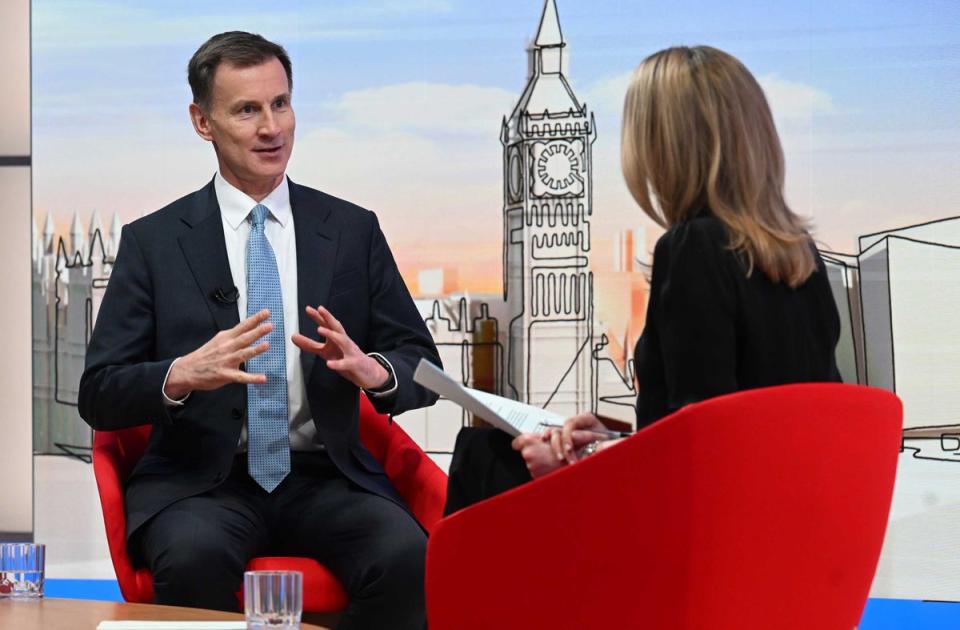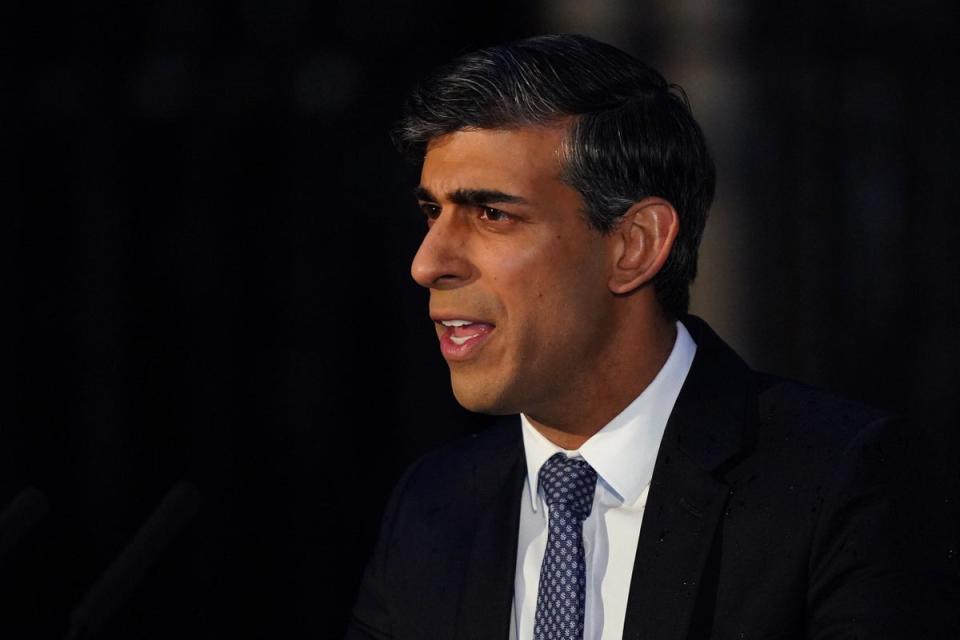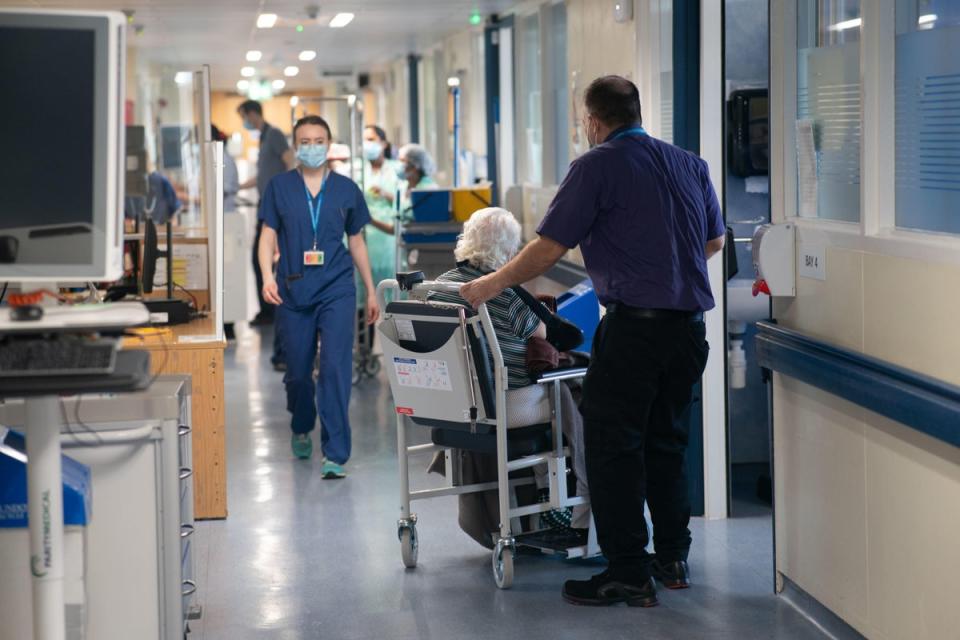Thousands of families will end up in poverty if the Chancellor cuts national insurance in the spring budget, think tanks have warned.
On Wednesday, Jeremy Hunt will unveil his final budget before the next general election, where he is widely expected to cut taxes in a last-ditch effort to win back voters.
Mr Hunt has hinted that a further cut in National Insurance Tax could be on the cards, as he told Sky News that his latest contribution cut in the November autumn statement was a “turning point” and he “hopes to make some progress on that journey on Wednesday”.

But now two think tanks have warned the chancellor against further cuts. They say poorer households will benefit little from the tax cut while facing a sharp decline in the services they depend on.
The Institute for Public Policy said a further depreciation of the pound would cost the government £10.4 billion, with almost half of that going into the pockets of the richest 20 percent of households, while a paltry 3 percent of households would end up. The funding would benefit the poorest 20 percent of families.
The progressive think tank’s analysis also shows disproportionate regional inequality, meaning households in London would receive an average of £608, while households in the North East would see an average gain of just £342.
The New Economics Foundation (NEF) has warned that even a 1p tax cut – which the Treasury is actively considering – would cost the government £4.8 billion, almost half of which would go to the richest households – while the poorest would receive only £160 million. .
This means the richest will receive twelve times more than the poorest, with those on the highest incomes receiving an extra £424 a year, compared to £34 a year for those on the lowest incomes.
Further analysis by the NEF shows that this cut would push an additional 55,000 people into relative poverty. If that amount were invested in universal credit, it could instead lift 384,000 people out of poverty with an extra £720 a year.
Sam Tims, senior economist at NEF, said the chancellor is “pushing for tax cuts that the country doesn’t want and that will benefit those who already have the most”.
“Not only will this reduce government revenues for the foreseeable future, but it will also worsen inequality, making us all poorer and damaging the country’s prospects.”
He added: “The responsible way to run our economy is to borrow to make smart investments that boost our economy and improve people’s lives. We need to raise money by raising taxes on the very rich. Investing in our schools, hospitals, housing and income safety net creates economic benefits and helps everyone live happier, healthier lives.”
The Chancellor has insisted he hopes to use the Budget to “show a path” towards tax cuts, but stressed that any tax cut must be “prudent”.
But the government’s tax cut plans have drawn caution from economists who have warned about the impact they could have on public services.


The International Monetary Fund (IMF) said tax cuts would be “very difficult to deliver” given Britain’s aging population and rising debt pile, while the Institute for Fiscal Studies (IFS) said the chancellor should not announce the tax cuts unless he which can. provide more details on its spending plans.”
Recent predictions from the Office for Budget Responsibility (OBR) have given the Chancellor less budgetary space than previously thought, leading him to consider unexpected tax increases such as abolishing non-domestic tax status.
Dr. George Dibb, deputy director for economic policy and head of the Center for Economic Justice at IPPR, said tax cuts are “neither in the public interest nor in the interest of the economy.”
Speak with The independentDr. Dibb said the public does not want tax cuts “because they know they will come at the expense of everyday spending on public services and future capital investments.”
“The prioritization of taxes above all else is a sign that the government understands that people feel the country is not working.
“But the first manifestation of that isn’t taxes, it’s the fact that they can’t get a GP appointment or an NHS dentist, or that it can take 12 hours to call an ambulance. These are matters that are much more urgent for the average voter than their tax bill.
He added: “I think we need to recognize that public services are a core part of the economy and how people think about the economy, and investing in that is the priority for the country.”
Despite warnings about strained public services, Hunt has insisted the government will keep public spending under control so it can prioritize tax cuts.
The Chancellor told the BBC that he did not believe in “expanding the welfare state forever” because “I don’t think that is compatible with reducing the tax burden in a society that makes work pay.”


Last month, left-wing think tank Resolution Foundation warned that the Chancellor’s current spending forecasts meant increasing daily spending on public services by 1 percent was a “budget fiction”.
It explained that as health, education and defense budgets are all protected, unprotected departments such as the Home Office, Ministry of Justice and local government will face a per capita cut of 17 by 2028-2029 percent will see.
Speaking to Times Radio, Mr Hunt said: “It is wrong to say that the only way to improve public services is to put more money into them.”
Darren Jones MP, Labour’s shadow chief of the Treasury, said that “whatever the Chancellor does with the Budget this week, working people will be worse off thanks to fourteen years of Tory failure”.
The Liberal Democrats have called on Mr Hunt to pledge more funding for the NHS and “put health at the heart of the Budget”.
Liberal Democrat Treasury spokesperson Sarah Olney MP said: “This chronic neglect of our health service by successive Conservative ministers is creating a sick economy and preventing our great country from reaching its full potential.”
She added: “Jeremy Hunt must put health at the heart of the Budget and cancel his disastrously short-sighted cuts to NHS spending. We cannot get the economy back to full swing without solving the health crisis, tackling the NHS backlog and getting people back to work.”
A Treasury spokesperson said: “This year’s National Insurance cut will save the average earner £450 a year and since 2010 we have taken a total of 3 million people off tax relief. We will not speculate on whether further tax cuts will be affordable in the coming budget.”